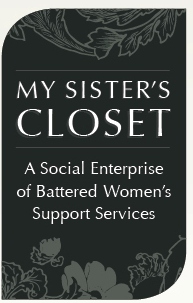Recognizing, Understanding and Addressing Economic Abuse
By Sara Yasan,
Manager, Training and Strategic Interventions
A complex combination of social, psychological, cultural, familial and economic factors contribute to a woman’s decision to remain in, leave and/or return to an abusive/violent relationship. Beside fear of losing their children, women who live with violence and abuse, frequently cite income, employment and financial stability as the strongest, most immediate deterrents to leaving abusive situations.
Impacted by the legacy of debt and imposed bankruptcies, even after leaving an abusive relationship, many women struggle to eat, find a safe place to live, achieve academic goals, support their children and rebuild their lives.
To understand the dynamics of financial abuse and the experiences of women survivors, we ought to recognize that financial abuse takes many forms. In fact, financial abuse is a common tactic of power and control in abusive relationships, which enables an abusive partner to control women by preventing or restricting her access to money, employment or other financial resources.
Abusive partners are motivated by the need for control and willing to use force, coercion or violence. Financial or economic abuse occurs when an abusive partner attempts to take total or partial control of woman’s financial resources, including money, property, an inheritance or employment income as well as prevent her from having access to, or making decisions for her own financial resources.
BWSS Economic Empowerment Strategies for Women: Recognizing and Addressing the Effects of Financial Abuse initiative explores and addresses the impacts of financial abuse on the lives of women.
Our objective through this initiative is to equip women survivors of violence, advocates, other frontline workers, policy analysts and other systems, institutions and government entities with strong analysis, practical resources, and information grounded in the lived experiences of women; through gaining these knowledge and skills these civil servants are better able to enhance women’s ability to engage in all levels of society; and, they are more capable of assisting women who are living with violence and abuse in achieving financial safety.
In order to ground ourselves in the experiences of women, through the month of April 2011, women who access our services were invited to take part in focus groups. Women were invited to share their stories and struggles as they experienced, and continue to experience, the impact of financial abuse.
The first session of the focus group series were held on April 7th, 2011. Nearly 40% of the women who participated in the group were either Indigenous or Immigrant women. Each woman passionately shared her story in the group, some for the very first time. Women described the many challenges they had faced, and continue to face, as the result of living through financial abuse. They shared the impact of financial dependency on their abusive partners, who were using financial abuse as a tactic of power and control. This economic dependency, however, is reinforced by societal and systemic gender discriminations that limits or denies women the opportunities to have access to and participate in the labour market and earn equal wages as male counterparts.
Women’s narratives highlighted that while financial abuse might not be as obvious or observable as other types of abuse, it profoundly impacts the safety and well being of women. Whether manifested through lack of access to some of the most basic life necessities like food and clothing and safe shelter, or marked by the systemic denial of access to financial resources, information and education, economic and financial abuse have a serious and lasting impact on women.
BWSS’ Economic Empowerment Strategies for Women: Recognizing and addressing the effects of financial abuse is holding two more focus groups in the month of April.
Read more about What is Economic Abuse?
BWSS’ Economic Empowerment Strategies for Women is funded by:
![]()

Founding Sponsors:
![]()
![]()





